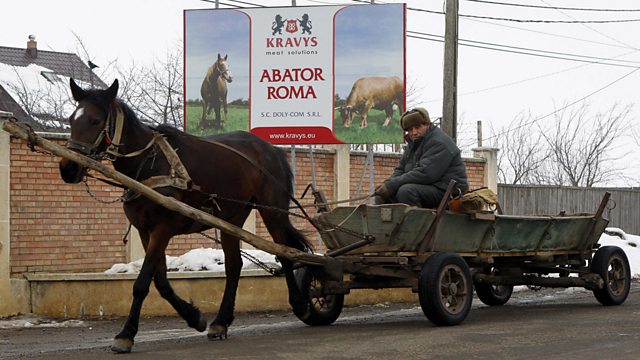Preventing a deadly disease and a vegetarian visits a slaughterhouse
Foreign correspondents with stories on efforts to prevent sickle-cell disease and a visit to a slaughterhouse in Romania.
A recent WHO report estimated that every year, around 150,000 Nigerians children are born with sickle cell anaemia. A genetic illness that mostly affects people of African or Caribbean descent, it is a painful disease that often leads to an early death. But as genetic testing has developed, more Nigerians are realising the danger posed by sickle cell and are taking steps to prevent it in their potential children. Adaobi Tricia Nwaubani met a couple who decided not to marry after their sickle-cell test.
There is barely anywhere in Europe now where horse-meat masquerading as beef has not hit the supermarket shelves - and now, the newspaper headlines. While not a major health issue, there has been an uproar in places – like Britain – where horses are pets, not food. And it has raised larger issues – exactly what are we eating, and where does it come from? The convoluted criss-crossing trade of meat across Europe has complicated the answers to those questions. Romania has denied that its abattoirs were the original suppliers of horsemeat. Our correspondent Nick Thorpe was invited to see a Romanian slaughterhouse in action.
Presented by Pascale Harter.
(Image: Man rides his horse-driven cart in front of Doly-Com meat plant in Roma village. Credit: Reuters)
Last on
Broadcasts
- Thu 21 Feb 2013 11:50GMTΒι¶ΉΤΌΕΔ World Service Online
- Thu 21 Feb 2013 19:50GMTΒι¶ΉΤΌΕΔ World Service Online
- Fri 22 Feb 2013 01:50GMTΒι¶ΉΤΌΕΔ World Service Online
- Fri 22 Feb 2013 04:50GMTΒι¶ΉΤΌΕΔ World Service Online

